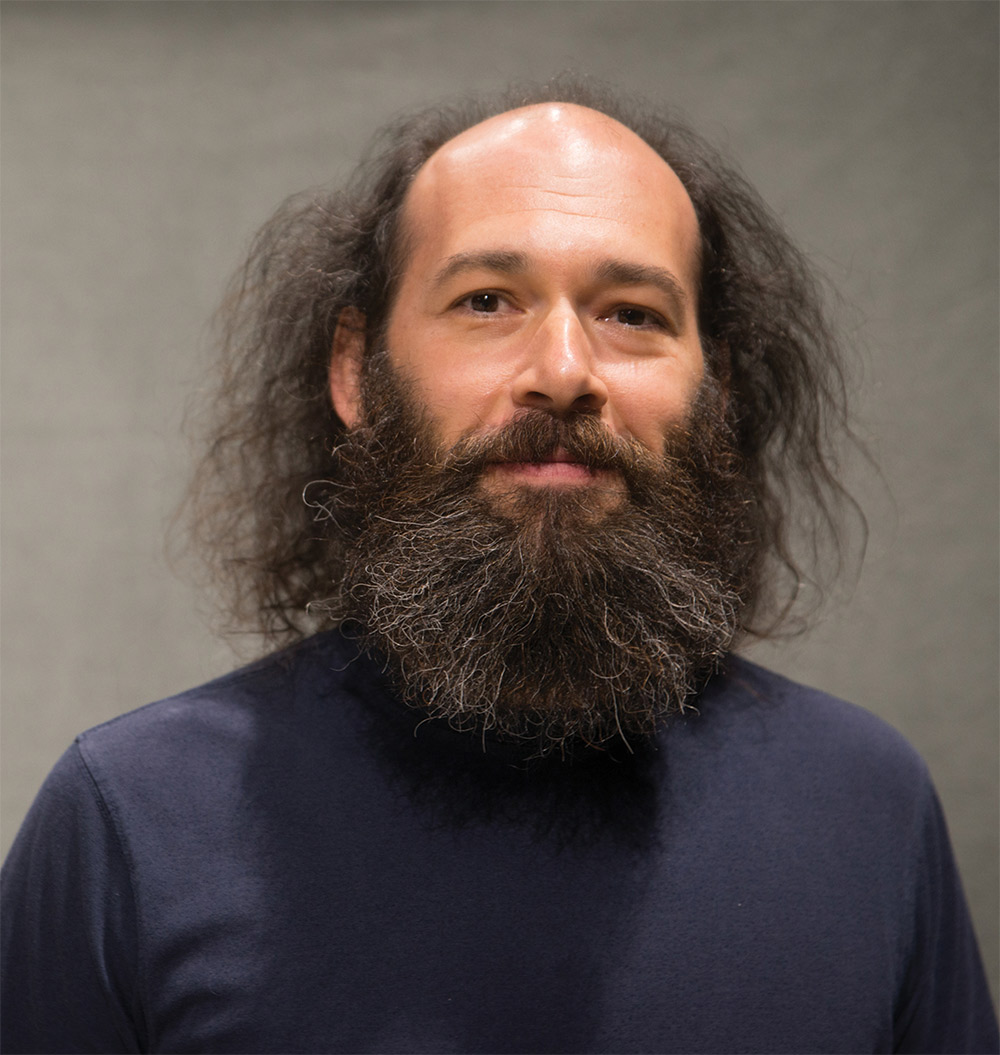A Motivator for Independent Thought
David Siegel, Ph.D., encourages critical thinking inside and outside the classroom

The political science professor enjoys splitting his time in front of the classroom between St Joseph’s Brooklyn and Long Island campuses, particularly because of the diverse student populations and dynamics each location presents.
“It brings variety and it definitely keeps things fresh,” said Dr. Siegel, who earned a Ph.D. in political science from the CUNY Graduate Center and has taught at St. Joseph’s since 2021. “Each campus has its distinct characteristics, and the student bodies are different as well.
“It makes things more interesting because you get to have very different kinds of discussions,” he continued. “Certain approaches may not work the same way on both campuses.”
On Mondays and Wednesdays, Dr. Siegel holds classes in Brooklyn, where he lives with his wife and their two young children. Tuesdays and Thursdays he teaches at the Long Island Campus, which happens to be just a couple miles from where he grew up in Bayport. His local Long Island roots run even deeper — his family has run Richard York of Patchogue Shoes in downtown Patchogue for three generations.
Dr. Siegel, who has carried out extensive research on state formation and transitions to capitalism within the states of the former Soviet Union, teaches Introduction to Political Science, Comparative Governments, International Relations and History of Political Thought.
His pedagogical approach centers on student empowerment. He teaches a broader understanding of politics, encouraging critical thinking and independent thought and emphasizing the importance of questioning conventional wisdom.
“I’m always really trying to get them to think for themselves. I really try to encourage critical thinking,” he said.
Dr. Siegel added that it’s vital to examine the history of political thought. For instance, when discussing political theory in class, he instructs his students to read the Trial of Socrates.
“It’s ultimately a text about thinking for yourself, questioning conventional wisdom and challenging those who are in power,” he said. “I often degrade my own viewpoints by telling students, ‘You shouldn’t really listen to my opinion. You should challenge my opinion. You should learn to think for yourself.’”
In addition to helping to cultivate minds in the classroom, Dr. Siegel is also typically working on a research project. A professor since 2010, he has published several papers relating to Russian politics and post-Soviet Central Asia.
Most recently, his paper “From Oligarchs to Oligarchy: The Failure of US Sanctions on Russia and its Implications for Theories of Informal Politics” was published in World Affairs. It delved into the effect of U.S. economic sanctions on Russia from 2014-2022, which came in wake of the conflict involving Russia’s annexation of Crimea from Ukraine.
“The argument I made in the paper was that U.S. sanctions after 2014 were not only ineffective, they were politically counterproductive,” he said. “Russian foreign policy actually became more aggressive after 2014 … and the full-scale invasion (of Ukraine in 2022) fits the pattern of events that I was describing.”
This summer, Dr. Siegel will continue to sharpen his expertise in comparative politics while working on several other research projects.